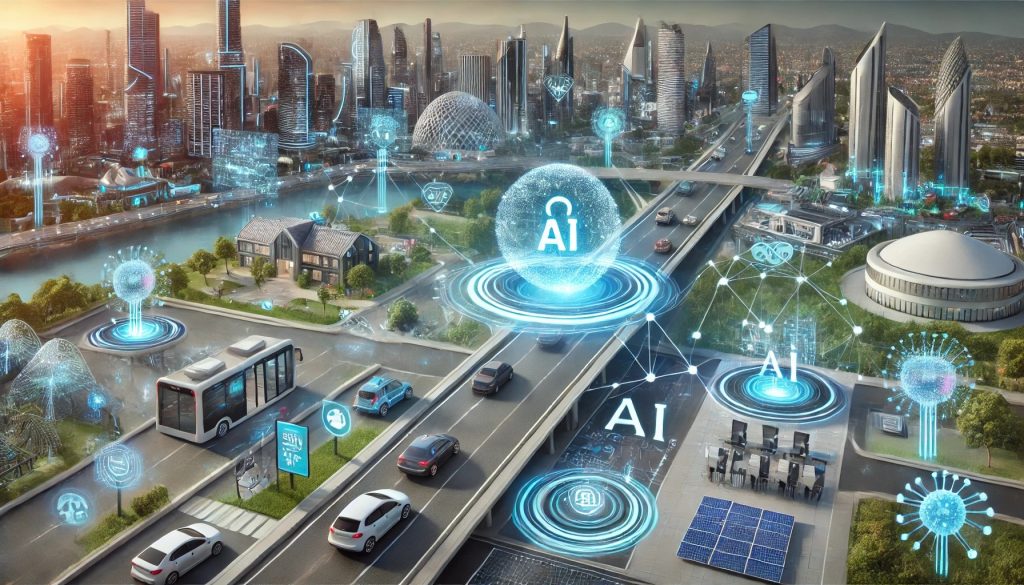Artificial Intelligence (AI) has rapidly evolved from a futuristic concept to a tangible reality. It is already revolutionizing various aspects of our lives and industries. The future of AI technology promises to further transform how we live, work, and interact with the world. As AI becomes increasingly integrated into our daily routines, understanding its future trajectory and potential impact is crucial. Here’s what to expect about the direction AI is heading.
The Evolution and Direction of AI
AI has achieved significant milestones in its evolution. AI has advanced from early developments in machine learning to the rise of deep learning and natural language processing. Today, AI systems can perform complex tasks such as image recognition and language translation. It’s even enhanced creative endeavors like composing music or generating art. As we look to the future, AI is expected to become more advanced, autonomous, and ubiquitous.
One of the primary directions for AI development is toward achieving greater general intelligence. While current AI systems excel in specific tasks (narrow AI), the goal is to develop Artificial General Intelligence (AGI). AGI makes it capable of understanding, learning, and applying knowledge across a wide range of tasks, similar to human intelligence. This shift will require advancements in algorithms, computational power, and data availability.
Additionally, the integration of AI with other emerging technologies, such as the Internet of Things (IoT), 5G, and quantum computing, will amplify its capabilities. For instance, AI-powered IoT devices will enable smarter homes and cities, while quantum computing could solve complex problems that are currently beyond the reach of classical computers. These synergies will drive AI’s evolution and expand its potential applications.
AI in Healthcare
Healthcare is one of the most promising fields for AI integration. AI’s ability to analyze vast amounts of data quickly and accurately can revolutionize diagnostics, treatment planning, and patient care. AI-powered systems can assist doctors in detecting diseases at early stages, predicting patient outcomes, and personalizing treatment plans based on individual genetic profiles and medical histories.
In the future, AI could enable more efficient drug discovery processes by identifying potential compounds and predicting their efficacy and safety. AI-driven robots and automation systems could perform surgeries with higher precision and fewer complications. Moreover, AI can facilitate remote patient monitoring and telemedicine, improving access to healthcare services, especially in underserved areas.
AI in Education
The education sector also has a place in the future of AI innovations. Personalized learning platforms powered by AI can tailor educational content to individual students’ needs, learning styles, and progress. These platforms can provide real-time feedback, identify knowledge gaps, and recommend resources to enhance learning outcomes.
AI can also automate administrative tasks, such as grading and scheduling, allowing educators to focus more on teaching and student engagement. Virtual tutors and AI-driven educational tools can provide additional support to students outside the classroom, fostering a more inclusive and effective learning environment.
AI in Transportation
The transportation industry is undergoing a transformation driven by AI advancements. Autonomous vehicles, powered by AI, are expected to become more prevalent, offering safer and more efficient transportation options. These vehicles can reduce traffic accidents caused by human error, optimize fuel consumption, and alleviate congestion through intelligent traffic management systems.
AI can also enhance public transportation systems by analyzing passenger data, predicting demand, and optimizing routes. The integration of AI with smart infrastructure, such as traffic lights and sensors, can further improve traffic flow and reduce travel times.
AI in Finance
The finance sector has already seen significant AI integration, and this trend is set to continue. AI algorithms can analyze vast datasets to identify patterns, predict market trends, and make data-driven investment decisions. Automated trading systems, powered by AI, can execute trades at high speeds and volumes, maximizing profitability and minimizing risks.
AI can also improve fraud detection and prevention by identifying suspicious activities and anomalies in real-time. In banking, AI-powered chatbots and virtual assistants can provide personalized customer service, streamline transactions, and enhance the overall banking experience.
Ethical and Societal Implications
While the future of AI holds immense potential, it also raises important ethical and societal considerations. As AI systems become more autonomous and pervasive, ensuring transparency, fairness, and accountability is paramount. There is a growing need for robust regulatory frameworks and ethical guidelines to govern AI development and deployment.
Job displacement is another critical issue, as AI and automation could replace certain job roles, particularly those involving repetitive tasks. However, AI can also create new job opportunities, requiring skills in AI development, data analysis, and technology management. Reskilling and upskilling the workforce will be essential to mitigate the impact of job displacement and harness the benefits of AI.
Conclusion
The future of AI is both exciting and complex, with the potential to transform various aspects of our lives and industries. As AI technology continues to advance, its integration into healthcare, education, transportation, finance, and other sectors will drive innovation and efficiency. However, navigating the ethical and societal implications of AI is crucial to ensure its responsible and equitable use.
In conclusion, the direction AI is heading promises a future where intelligent systems augment human capabilities, solve complex problems, and enhance our quality of life. By embracing AI advancements and addressing the associated challenges, we can unlock the full potential of this transformative technology and shape a future that benefits everyone. As we move forward, staying informed, adaptable, and ethically grounded will be key to leveraging AI’s opportunities and overcoming its challenges.

